About
"It is clear that the environmental impacts of the Fiber, Textile, and Clothing industry are great, the need for change is urgent, and meeting the challenge will require both a social science and natural science approach." (LeHew, Armstrong, Hiller & Anderson, 2012)
Who are we (ATHENAS)?
We are apparel and textile (AT) educators, responsible for preparing the next generation of industry professionals. We strive to be forward-thinking, recognizing challenges and opportunities facing our industry and seeking solutions and approaches for inclusion in educational programs to meet the needs of a changing industry. The sustainability challenge provides opportunities to rethink our curriculum, enhancing science knowledge and problem-solving capabilities of our students. Developing a strong foundation of science literacy and honing ability to develop solutions will increase the marketability of our graduates and accelerate the industry’s transformation toward sustainability. We are compelled to envision a better way forward. We seek to galvanize individual and collective action.
Join us! Help transform AT education and the AT industry. Contribute your research, educational resources, and connect with others who share the vision by communicating your experience in the transformation effort.
Contact us: athenas@ksu.edu
APA Citation for this website:
Anderson, B. G., LeHew, M. L. A., Hiller Connell, K. Y., Sutheimer, S., & Hustvedt, G. (2016, January 11).
Professional Development and Education for Apparel and Textiles Educators. Retrieved from athenas.ksu.edu
What is the ATHENAS web portal about and what can you expect?
This portal provides AT educators with professional development modules to enhance their understanding of climate change and the connection climate change has to the AT industry. Educational resources for use in the classroom are made available with instructor guides. Additional supporting materials have been identified and links provided so that educators and students can easily access them to deepen their understanding. We expect to continually update the information and materials available on this site in order to provide appropriate educational support for AT educators. We are hoping others join this effort and encourage your participation in identifying quality resources to be added to the site.
What is the project about?
ATHENAS was conceptualized during a large scale, multi-institutional initiative funded by the United States Department of Agriculture (USDA) National Institute of Food and Agriculture (NIFA) Higher Education Challenge Grant program. The purpose of the funded project was to encourage transformation of apparel and textiles (AT) education by:
- Accelerating the inclusion of climate change and other environmental sustainability competencies into AT programs in the United States.
- Enhancing the quality of instruction so that AT graduates have workplace skills and knowledge required for success in an industry undergoing transformation toward sustainability.
- Increasing the number and diversity of students who pursue a baccalaureate program in the AT discipline.
Development of the initial project was a joint effort between apparel and textile scholars at Kansas State University, Oklahoma State University and Texas State University San Marcos.
Project Directors
Melody L. A. LeHew, PhD
Department of Apparel, Textiles, and Interior Design, Kansas State University
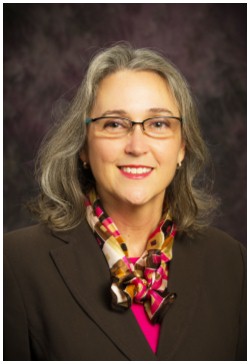
Dr. LeHew completed graduate studies related to retail strategy and consumer behavior. Her research program focuses on sustainable behaviors at all levels of production and consumption and sustainability education in higher education. Dr. LeHew is particularly interested in exploring the sustainable products and processes that satisfy consumer needs; examining behaviors that lead to more sustainable consumption practices, and identifying both obstacles to and solutions for the integration of sustainability in apparel and textile curriculum.
Kim Y. Hiller Connell, PhD
Department of Apparel, Textiles, and Interior Design, Kansas State University
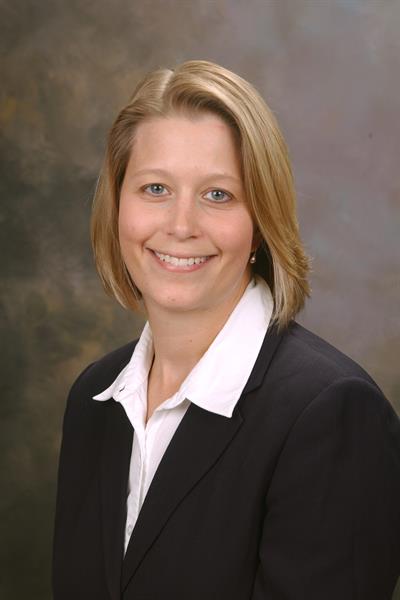
Dr. Hiller completed graduate studies related to apparel and textiles, environmental science and policy, as well as international development. Her areas of expertise are consumer behavior and sustainability within the fiber, textile and clothing supply chain. She has published in consumer and sustainability education related journals and has received funding for research related to understanding and encouraging sustainable apparel consumption. Dr. Hiller also teaches sustainability-focused courses at both graduate and undergraduate levels.
Gwendolyn Hustvedt, PhD
School of Family and Consumer Science, Texas State University San Marcos
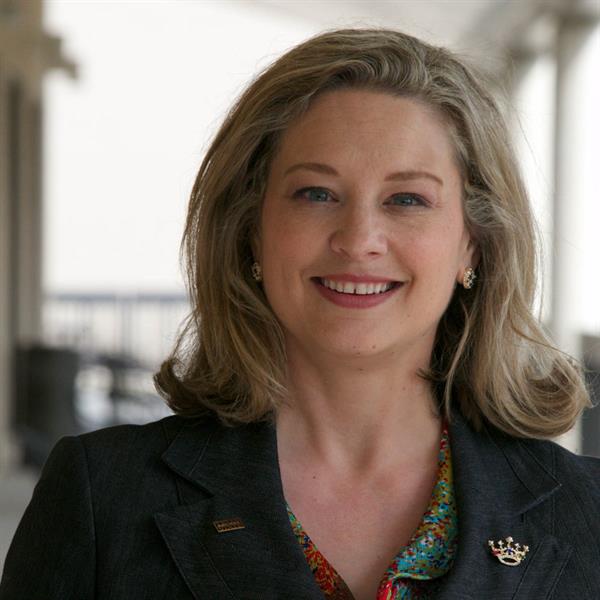
Dr. Hustvedt completed graduate work in textile science and consumer behavior and her area of expertise are sustainable product development and the impact of labeling and production information on consumer demand for sustainable products. Her research has been funded by both industry and the USDA and her publications on organic and local consumption by both cotton and wool consumers have contributed to the growing body of literature on sustainable consumption. Dr. Hustvedt is also the graduate advisor for the Master's of Interdisciplinary Studies in sustainability Studies at TXSU.
Barbara G. Anderson, MArch
Department of Apparel, Textiles, and Interior Design, Kansas State University
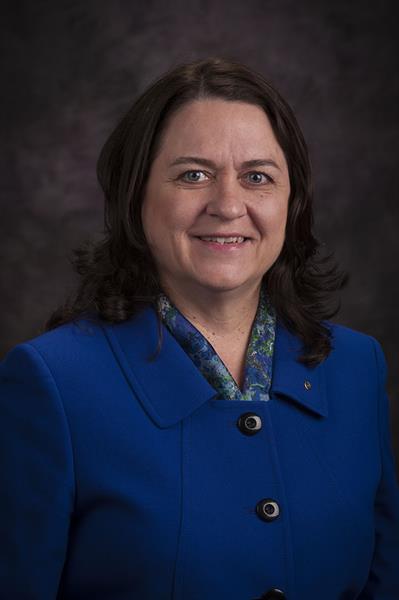
Barbara Anderson holds a terminal MArch with an emphasis in American architectural history. She has taught sustainability at the graduate and undergraduate levels. Her scholarship has included consumer attitudes toward sustainability related to apparel and interiors, the role of building preservation in sustainability, and effective teaching strategies for transformational learning related to sustainability. She is Department Head in her unit and believes university students in every discipline have the potential to change the future by acquiring knowledge of sustainability.
Why Is This Important?
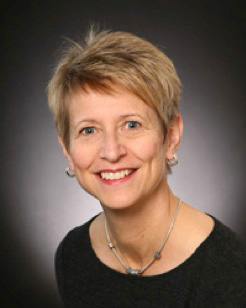 “As a professional in the apparel industry with a technical science based textile education, I am all too familiar with the fiber, textile, and clothing (FTC) manufacturing methods. I have first-hand knowledge of the high water use and discharge, chemical use, energy demand and significant contribution to the greenhouse gas emissions that result from the current practices in this industry. Everyday I place a filter on my projects to determine how they can be more environmentally positive. As we interview job candidates in the FTC field, our focus is on well-rounded individuals who have, at a minimum, a science based understanding of the issues that face the industry. The current FTC postsecondary students we interview are not prepared with the knowledge or skills needed to deal with the environmental issues of the industry, or the science behind understanding these issues.”
“As a professional in the apparel industry with a technical science based textile education, I am all too familiar with the fiber, textile, and clothing (FTC) manufacturing methods. I have first-hand knowledge of the high water use and discharge, chemical use, energy demand and significant contribution to the greenhouse gas emissions that result from the current practices in this industry. Everyday I place a filter on my projects to determine how they can be more environmentally positive. As we interview job candidates in the FTC field, our focus is on well-rounded individuals who have, at a minimum, a science based understanding of the issues that face the industry. The current FTC postsecondary students we interview are not prepared with the knowledge or skills needed to deal with the environmental issues of the industry, or the science behind understanding these issues.”
Becky Pirkl Hurd | Materials Research Director | Apparel Innovation, Nike Inc.
Sue Sutheimer | Professor of Chemistry and Director of the Chemistry Program | Green Mountain College | Poultney, Vermont
Jonas Larsson | Senior Lecturer | University of Borås | Sverige | Sweden
Recruitment
Why is recruiting using Sustainability valuable?
Apparel and Textiles is a popular field for students who are interested in fashion, but these aren’t the only students that should be recruited into AT programs. Focusing on how AT professionals can impact sustainability is an excellent way to expand the number of majors who have strong Science, Technology, Engineering and Math (STEM) skills and are looking for a meaningful way to apply those skills in impacting global sustainability. Students from all backgrounds want to feel they are making a difference in the world. By introducing climate change and sharing how the AT industry will need their skills to make the world a better place, students may be able to see their potential for making an impact.
Recruiting Ideas
Attracting students who are prepared to tackle sustainability challenges means more than just sitting back and letting the current reputation of the AT industry do its work. Part of the effort to change the AT curriculum is to attract students eager to work hard to understand the science behind AT products and processes. Follow the links at the bottom of this section under the heading Recruiting Materials to find information on how to use your current career events, your connection with Family Consumer Science (FCS) teachers in secondary schools and inquiries directly from students to send the message that AT programs are looking for students who are keen on sustainability and STEM.
Your program may already participate in career events. When you set up your booth at a career day, be sure to download, personalize if you like, and print our posters. You may want to create other recruiting materials similar to those we have included as examples.
If you want to make a bigger splash, when you host AT industry recruiters on campus, invite secondary students from the schools that send students to your program. As part of their day, ask your faculty, students or industry partners to give the secondary students a special message about why they will need STEM skills to succeed in both AT programs and AT careers. Just one person telling your future student to “pay attention in math and science classes” and “get ready to make a difference for the environment” can signal to quality students that your program is ready for them. Use the Career Pre/Post Surveys found under Recruiting Materials below to measure the impact that your message has on student who attend your events. Share the posters with FCS and STEM secondary teachers who bring students to your event.
FCS Secondary Classrooms
For AT programs looking to recruit quality students, the FCS secondary classroom is a valuable venue that should not be ignored. FCS teachers in high schools that send students to your institution are your allies in shaping the attitudes of students towards AT programs and careers. While offering to spend time with FCS students in their classroom is the most effective way to share the message about your program, sending recruiting materials for the FCS teacher to post in their classroom or share with their students is also valuable. In the Recruiting Materials section below there are materials for FCS Secondary Teachers. If your institution certifies FCS teachers, your FCS Teacher Certification director can help you determine which high schools may have your alumni as teachers.
Communication with Parents
When you are sharing recruiting information directly with parents, keep in mind that they may need a special message about the potential for their student to succeed and prosper in the AT industry. Letting parents know that your AT program is looking for high school or transfer students with strong STEM skills and that the AT industry has many well paid positions, even in retail, is an important way to allay their concerns about the benefit of an AT education. Focusing on sustainability can also help reassure parents who may wrongly consider AT programs as fostering a “self-centered” attitude in fashion-conscious students. When visiting with prospective students, be sure to ask them if they would like more information to help their parents understand how the choice of an AT program will use all of their best skills and values to make the world a better place.
Recruiting Materials
Connecting with high school students about sustainability and the STEM skills required to make a difference in the AT industry is an important way to ensure that students who choose your AT program are ready to succeed. If your institution certifies FCS teachers, your FCS Teacher Certification Director can be a valuable partner in shaping the message that students hear about your program. Share these materials with your FCS Certification program, directly with FCS Secondary Teachers, at career events and with students who inquire about your program.
- Letter for FCS Certification Directors
- Letter for FCS Teachers
- Posters
- Poster Wrap
- Other example Materials
- Texas State Science Poster
- Texas State Technology Poster
- Texas State Engineering Poster
- Texas State Math Poster
- Texas State bookmark for parents
